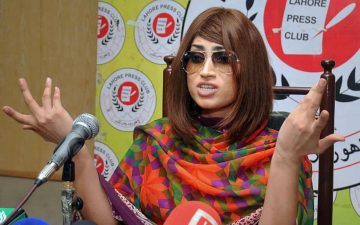Rachel Cooke in The Guardian:
 It takes a little over two hours to drive from Multan, a city in southern Punjab, Pakistan, to the village of Shah Sadar Din, and the first time the journalist Sanam Maher made the journey, her eyes widened at every turn. In Dera Ghazi Khan, a town close to the village, none of the faces of the women she saw on the streets were visible. Some wore what looked like black ski masks with slits for their eyes. Others were covered by burqas with no eye-slits at all and so extensive that she felt half naked under her own dupatta (scarf). A thin funnel rises from the top of this kind of burqa: a device to allow air inside so that the wearer does not suffocate. Her contact in the town, noticing her staring, mentioned a place not far away, where the tribal belt of Balochistan province starts: the women there, he told her, were not given shoes. She was confused. Why not? “You’ll never look at any man if you’re scared of where your naked foot might fall when you leave your home,” he replied impatiently, as if it was the most obvious thing in the world.
It takes a little over two hours to drive from Multan, a city in southern Punjab, Pakistan, to the village of Shah Sadar Din, and the first time the journalist Sanam Maher made the journey, her eyes widened at every turn. In Dera Ghazi Khan, a town close to the village, none of the faces of the women she saw on the streets were visible. Some wore what looked like black ski masks with slits for their eyes. Others were covered by burqas with no eye-slits at all and so extensive that she felt half naked under her own dupatta (scarf). A thin funnel rises from the top of this kind of burqa: a device to allow air inside so that the wearer does not suffocate. Her contact in the town, noticing her staring, mentioned a place not far away, where the tribal belt of Balochistan province starts: the women there, he told her, were not given shoes. She was confused. Why not? “You’ll never look at any man if you’re scared of where your naked foot might fall when you leave your home,” he replied impatiently, as if it was the most obvious thing in the world.
Maher, who is based in Karachi, was in Shah Sadar Din to investigate the life and death of Fouzia Azeem, AKA Qandeel Baloch, Pakistan’s first social media celebrity and the woman some like to describe as its Kim Kardashian. Baloch was born here, the daughter of a poor family, and when she was murdered on 15 July, 2016, her body was supposed to end up in the village’s brown river, a spot well known for being the final resting place of women who have died at the hands of their relatives in so-called “honour” killings. On the day in question, however, there were too many people around to manage this (another villager had died; crowds of mourners were gathering). Baloch’s mother found the body at home; her father informed the authorities. When the police arrived, Baloch was still lying where she had been drugged and asphyxiated, in a bedroom at the small house that she rented for her parents in Multan. She was just 26.
“Visiting Shah Sadar Din was a huge culture shock for me,” says Maher, whose book about the case, A Woman Like Her, is published in the UK next month (it has already caused something of a sensation in south Asia). “The women were so completely covered: I’d never seen that anywhere that I’d lived or worked. But it’s important to say straight off that, though this is typical of south Punjab, it has nothing at all to do with religion. These [dress codes] are cultural diktats, just as honour killing and other forms of violence against women are cultural diktats. This is men wanting to control how the women around them live.”
More here.
